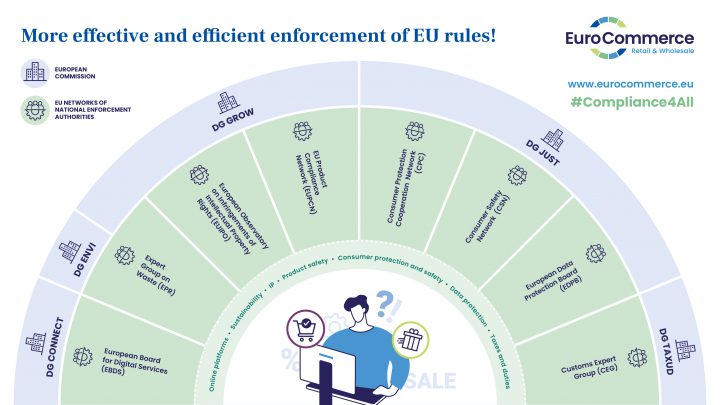
Let's protect consumers and create a fair competitive environment for businesses
We need to start acting against non-compliant third-country traders. In the past years, competition from non-EU based traders and marketplaces targeting consumers in the EU has drastically increased.
Unfair competition
Competition is healthy and keeps markets innovative. However, it seems that this rapid growth of non-EU based traders is partly due to non-compliance with existing EU legislation, thus creating an unfair competitive environment. Our Finnish member Kaupan Liitto, calculated that the price of a product sold in Finland by EU companies increases by 1/3 compared to a similar product sold by third-country traders from Asia due to compliance costs.
Unsafe products
More importantly, consumers are suffering from unfair competition in multiple ways. Information about environmental impact is incorrect, products are made with forced labour, products contain chemicals above health-threatening levels, toys pose suffocation risk by small parts that can be swallowed or risk of strangulation, price reduction announcements are misleading, aggressive marketing practices push consumers into buying products they do not want or need.
We need #Compliance4All to earn consumer trust, create a safe online environment for EU consumers and create a level playing field for all traders targeting EU consumers.
In particular, we found 5 main domains of EU law breaches
1. Violation of product safety requirements
There are growing concerns about the composition of products sold by many non-EU marketplaces. Many member states have conducted tests with shocking results: many products contain hazardous substances that are at a dangerous level, not complying with various product laws. These toxic chemicals are often found in toys and cosmetics and cause health problems. Our Finnish member Kaupan Litto tested many different products groups (homeware, clothing, kitchenware, cosmetics, toys) and found that most of them did not comply to relevant EU legislation. The customs authorities in Germany have investigated over 800 products purchased from non-EU based marketplaces and concluded that 95% of them don’t comply with EU Law.
Under the new EU product safety rules (GPSR), products in EU marketplaces should be safe and should not cause any danger to life or health. The Regulation will come into force across the EU in December 2024. It will empower Member States to cooperate in areas of product safety, through joint surveillance and testing projects. This would also extend to e-commerce platforms and would provide enforcement authorities to step up coordination between different authorities.
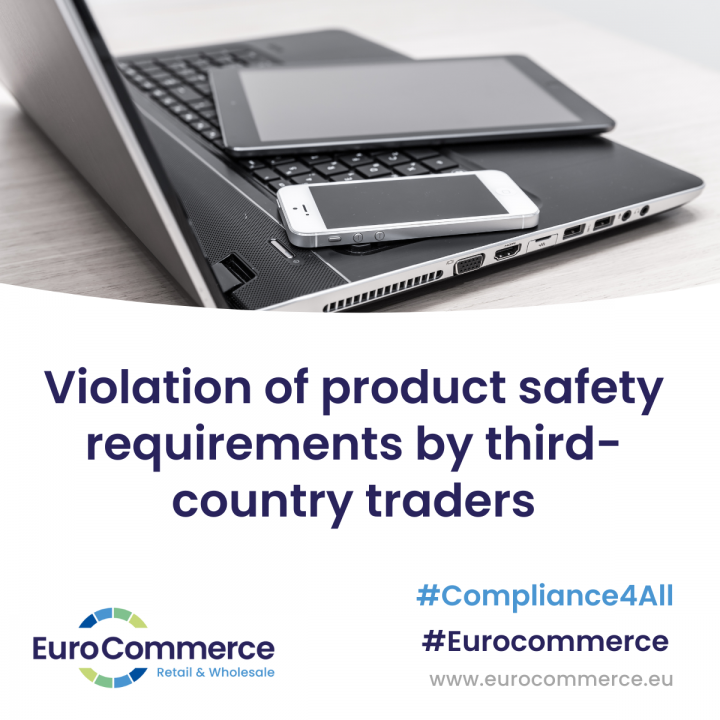
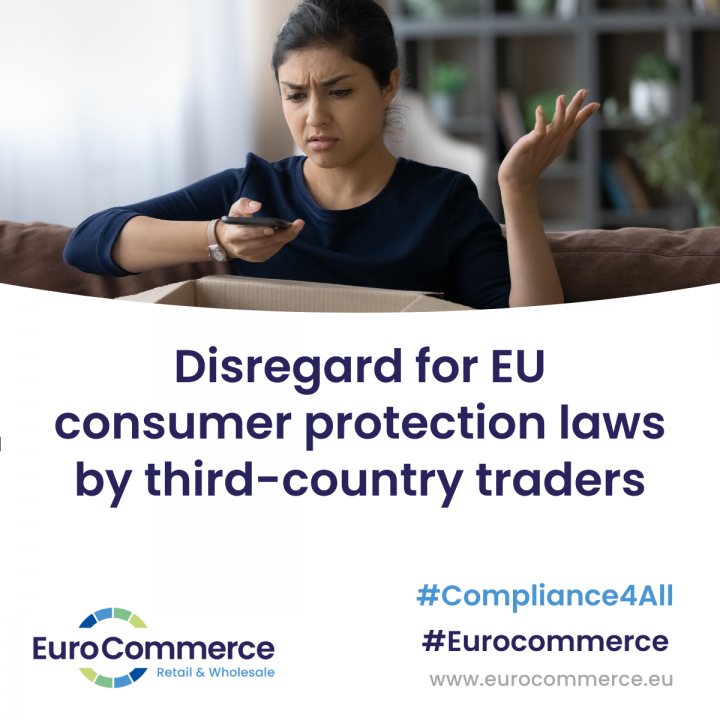
2. Disregard for EU Consumer Protection Laws
The EU protects consumers through different legislative tools – the Consumer Rights Directive, Unfair contract terms Directive and Consumer sales and guarantees, all modernised through the Omnibus Directive. These deal with issues such as the right of withdrawal (14-days return right online), legal guarantee, unfair contract terms and consumers’ access to redress. However, many third country traders do not provide clear information for consumers to seek redress or return a product if they are not satisfied. For instance, in a recent letter sent by the Polish authorities, they note that the price promotions and reductions displayed on websites do not comply with the current Omnibus Directive. The Directive asks traders to report a price reduction that was in effect 30 days prior.
Some third country traders also use aggressive commercial practices that mislead and manipulate consumers to buy things that they do not need. According to the Unfair Commercial Practices Directive, these practices are defined as making use of harassment, coercion, physical force or undue influence, and are not allowed to be exercised towards EU consumers. Our German member HDE found that claims on non-EU based platforms give consumers the impression that a product is only available for a short period of time under certain conditions, misleading consumers to make a purchase in a short period of time.
3. Avoidance of EU customs rules
At least part of the success of some third country players is based on disregarding customs rules. The EU market is flooded with shipments from outside the EU, often containing incorrect values for goods and leading to correspondingly lower tax payments. In Germany, our member HDE found that two big online marketplaces operating outside the EU sent 400,000 packages daily.
Due to limited sources, only a minimal percentage of these shipments can be checked, leading to under-declaration by non-EU based players to remain under the 150 Euro customs threshold. National authorities, especially market surveillance and customs, lack resources and face challenges to coordinate with their peers and with other Member States. In the Netherlands, 718 million out of the totally 1 bn declarations came from e-commerce. As a result, the Dutch customs authorities conclude that effective enforcement is no longer possible using the existing methods. As a result, European retailers suffer the consequences of unfair competition.
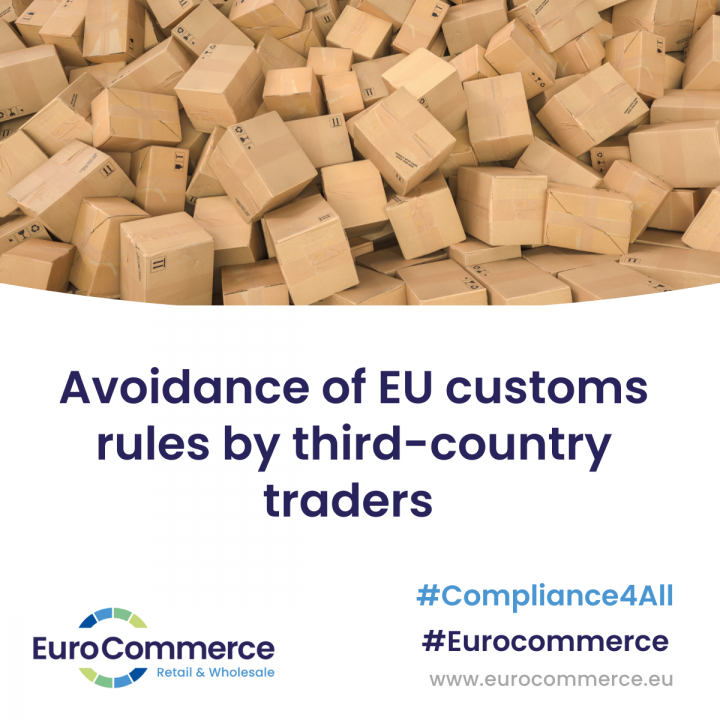
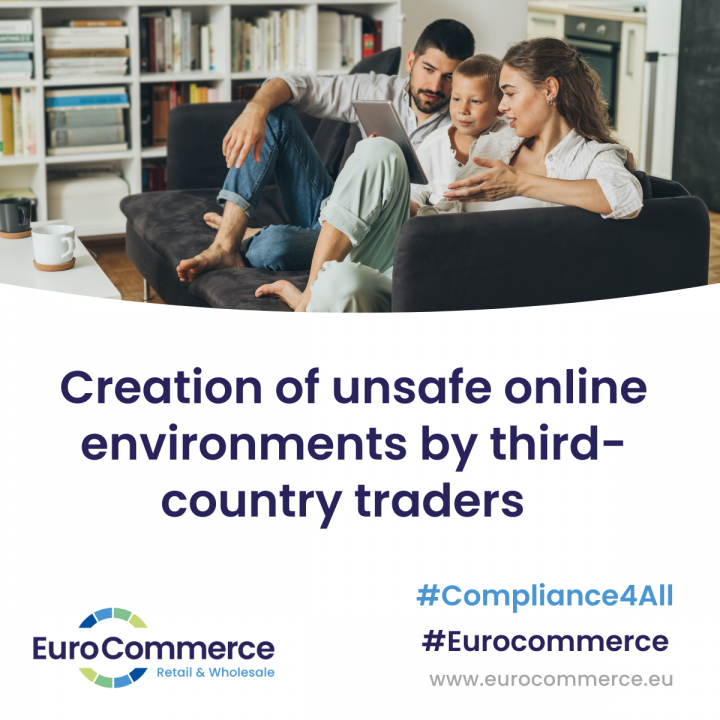
4. Creation of unsafe online environments
Unfair competition affects retailers and consumers alike. For instance, aggressive marketing practices may create unsafe online environments that push consumers to buy what they do not want or need. We observe that the rise of game-like shopping experiences, which in combination with gambling-like mini-games, races with others, recommenders and monetary incentives to share with friends, will particularly put minors at risk.
Large online marketplaces have an obligation under the European Digital Services Act to provide a safe online environment. The European Commission has designated 27 online platforms as Very Large Online Platforms (VLOPs) that includes different marketplaces, also third country traders. While VLOPs under the DSA have to provide annual auditing and risk assessments, amongst other things, we also urge the Commission to work across different Commissioner Services to be able to enforce EU rules better.
5. Breach of data protection rules
The EU has one of the highest data protection standards through the General Data Protection Regulation (GDPR) since 2016. However, the EU falls short of enforcing these standards, especially on the personal data used by third country traders.
According to a German testing agency, some third country traders ask for more personal data than other platforms and ask consumers to reveal more personal data during the ordering process. Moreover, it is unclear whether these online platforms that often use mobile apps, are complying with the GDPR. This has been also raised by Member States who have sent questions to third-country traders, most recently by the Polish authorities.
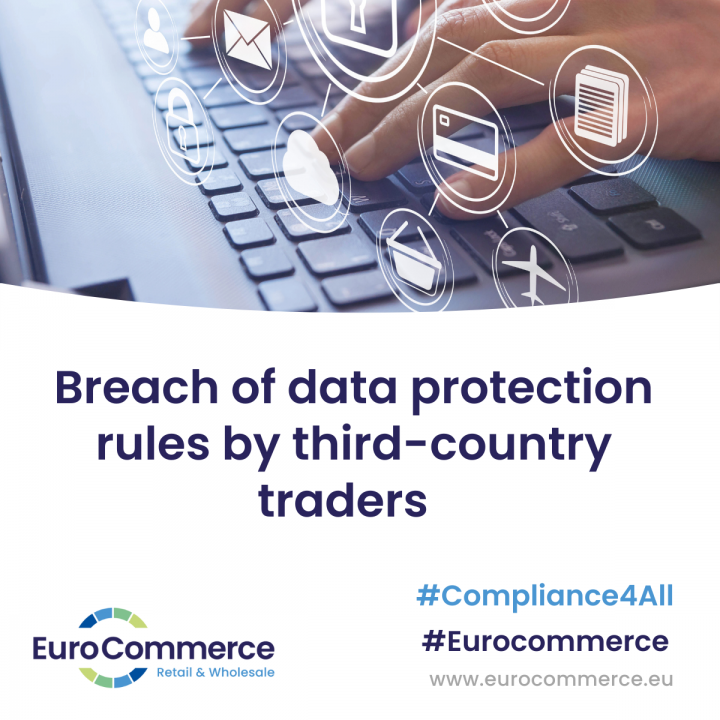
The EU has the highest level of consumer protection and product safety in the world. But increasingly, we fall short on enforcing our own rules. In many Member States national authorities are only looking at enforcement of rules within their mandate and are not working effectively and efficiently together across domains. This fragmented approach is repeated at EU level as shown below: different Commission services and different EU enforcement networks all focusing on their enforcement domain but not working together.
We need cross-policy enforcement of EU rules
We urgently need a coordinated enforcement strategy from all authorities and the European Commission to protect consumers and ensure a vibrant, innovative European retail sector by 2030.
No one can solve this alone. We need more and better cooperation and coordination at EU and national levels, within peer networks and across policy domains. We must break down the silos
🤝 Join our call, let’s protect consumers and create a fair competitive environment
Ilya Bruggeman
Director, Digital, Single Market, and Consumer Policy

Ilya and his team deal with digital, payments, single market and consumer policy. They run the IMCO and Payments committees. He worked previously for the Dutch Retail Association and as a public affairs consultant. Ilya is a Dutch national and studied Public Administration at Leiden University in the Netherlands.

